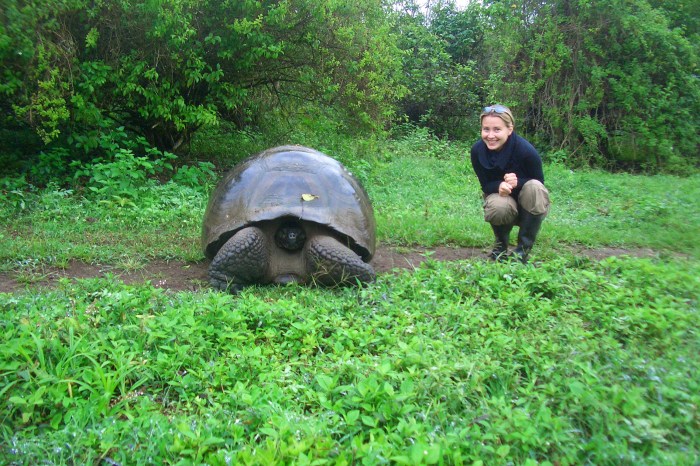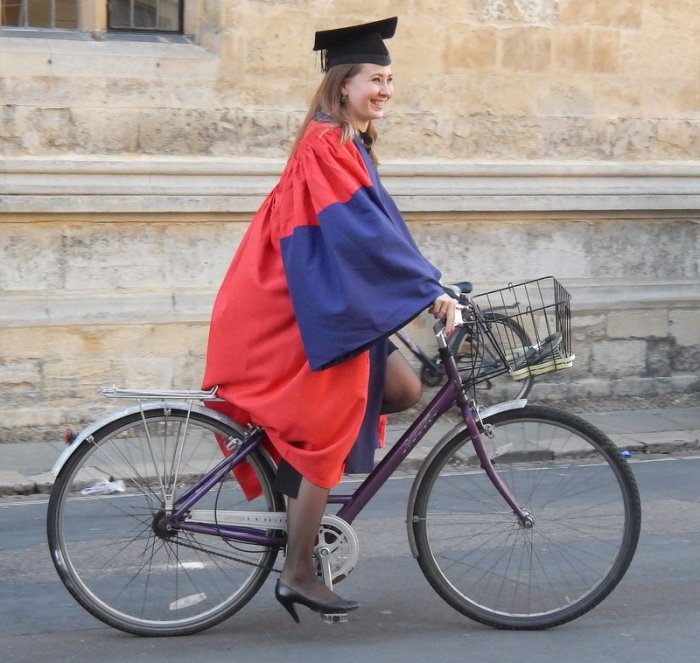From Women in Research
Joanna Bagniewska, 31, from Poland is a Teaching Fellow at the School of Biological Sciences, University of Reading, UK.
She is a zoologist specializing in ecology ad conservation. She works on invasive species, i.e. species that have been brought, accidentally or intentionally, into new areas, and that became so successful in their new habitats that they pose a threat to native biodiversity.
Enjoy the interview with Joanna and get inspired:
- What inspired you to pursue a career in your field (physics/biology/STEM/etc)?
I have pretty much always loved animals, and had a great interest in them – as a child, I would spend hours reading about classification and taxonomy, especially of small mammals. At the same time though, I had a very broad interest in other subjects, and my best grades in school were in history – incidentally it was my high school history teacher who taught me the most about analytical thinking and writing, systematic research and fact checking. I could not decide what to study at university (I have always been a pretty indecisive person, and at the time I was torn between architecture, Chinese studies and animal science), and in the end I went for biology, to pursue my interest in wildlife. I suppose it was almost an accidental choice – but I don’t regret it.
- Who are your role models?
This is a difficult question, as I normally don’t think much about role models – maybe I have not been lucky enough to find someone perfect enough to want to emulate? Instead I have a network of supportive and constructively critical people to rely on, who act as my springboard. But if I were to pick one historical figure, I’d go for Hedy Lamarr – a very successful actress and inventor, who migrated from Austria to the US in the 1930s, and apart from having a stunning Hollywood career, she also invented a jam-proof radio guidance system for torpedoes. She proved that one can be a great scientist, a feminine actress, and a well-integrated immigrant all at the same time.
- How did you get to where you are in your career path?
I started out studying biology at Jacobs University in Bremen, Germany. Very soon I realized that most of what I was studying was about the tiny things I had difficulties relating to (my degree was heavy on biochemistry, cell biology and biochemical engineering), and so if I wanted to focus on ecology, behavioral biology or conservation, I had to take action myself. I found a course in mammalian behavior in Nuremberg, and not only did I gustily ask my professors to excuse my absence for two weeks, I also asked the university to fund my course – and they, miraculously, agreed! I went, and through the contacts gained there I was able to do a summer internship on the road ecology of Australia’s Snowy Mountains. From that point onward I knew that ecology is something I enjoy doing the most. I couldn’t face going back to working in the labs at Jacobs, so I decided to spend a semester abroad at Rice University in Houston, Texas. There I had a chance to do my dissertation project at the Houston Zoo, and I had a first proper flavor of theoretical ecology, biodiversity and fieldwork methods. I enjoyed the US so much, that I decided to stay there for grad school – but unfortunately even though I had a few acceptance letters, I did not receive any funding. Subsequently I turned to Oxford, where I applied for an MSc in Biology, and got accepted with a studentship. During my Master’s I was able to obtain funding to travel to South Africa for fieldwork – I completed a project on foxes and jackals under the supervision of Dr Jan Kamler, a great inspiration, mentor and friend. I then stayed at Oxford, to finish a doctorate at the Wildlife Conservation Research Unit. Afterwards, I faced several months of unemployment – I tried all sorts of part-time jobs, including tour guiding, tutoring, note-taking and modelling, while looking for something more stable. This was incredibly frustrating, first of all financially, but also because of the pressure, both external and internal (“what? you have a doctorate from OXFORD and you don’t have a job???”). Eventually I managed to find work at a start-up, Inscentinel Ltd, for a few months; unfortunately then the company dissolved. After a few more trying months I got an offer of a lectureship at Nottingham Trent University. This was an excellent learning experience for me, and a thoroughly enjoyable job. Eventually however, mainly for geographical reasons (my husband was working in Oxford), I moved back south and took on my current job as a teaching fellow at the University of Reading.

- What is the coolest project you have worked on and why?
It must be a project I was involved in while working at Inscentinel Ltd – we trained honeybees to detect illegal substances such as explosives and drugs. Their sense of smell is better than that of dogs, and they learn very fast! Plus they themselves smell beautifully – of honey and wings.
- What’s a time you felt immense pride in yourself / your work?
While working at Nottingham Trent University, I was the course leader for one of the BSc programmes. A student arranged a meeting with me to talk about his career – he had doubts about whether to continue with his degree or not. After I gave him a pretty intense pep-talk, he decided to stay. He completed his degree and sent me a very heartfelt thank you email, saying that it was because of that conversation we have had. I was very proud of him, and of myself.
- What is a “day in the life” of Joanna like?
I don’t really have a typical work day – in my job, I do all sorts of things (which is great, because it means I’m never bored). Some days I spend mainly with my students – either giving lectures or doing practicals in the field; other days I spend mainly with my computer – on research and programming. Still, the best days are the ones I spend outdoors, chasing animals. That’s pretty diverse, too – I could be surveying small mammals, or observing bird behaviour, or trapping insects.
In summer, I take my students out for fieldwork – last year we have spent a couple of weeks in South Africa and in Sweden; this year – Sweden and Iceland. That’s a very intensive time, because we are out and about all day – collecting samples, looking at animal tracks, identifying plants – but it is also great fun.
Sometimes I’m in a tent in the South African mountains, trying to warm myself by the fire, wearing hiking boots and a fleece – and sometimes I’m at a conference in high heels and a smart jacket.

- What are you seeking to accomplish in your career?
I have a deal with my husband that he’ll be rich, and I’ll be famous – he’s getting there, so now I need to catch up!
- What do you like to do when you’re not doing research?
I like science communication, so I write popular science articles, or prepare science stand-up comedy routines. I also travel, dance, cycle and spend time being a social butterfly.
- What advice do you have for other women interested in your field (physics/biology/STEM/etc)?
Be prepared for very heavy competition, very little money and a lot of frustrations. Always have a back-up plan. Build a network of supportive people around you. Find mentors, or honest colleagues you can ask for advice. Be nice to people. Support the vulnerable persons around you, e.g. ones lower down the career ladder. Volunteer. Keep an open mind.
- In your opinion, what will be the next great breakthrough in your field (physics/biology/STEM/etc)?
I think developing new, self-powered data-loggers for studying animal behavior.
What should be done to increase the number of female professors?
Have better paternity leaves. It’s ridiculous how little time men get to spend with their kids, and how much of an impact that can have on the careers of women.